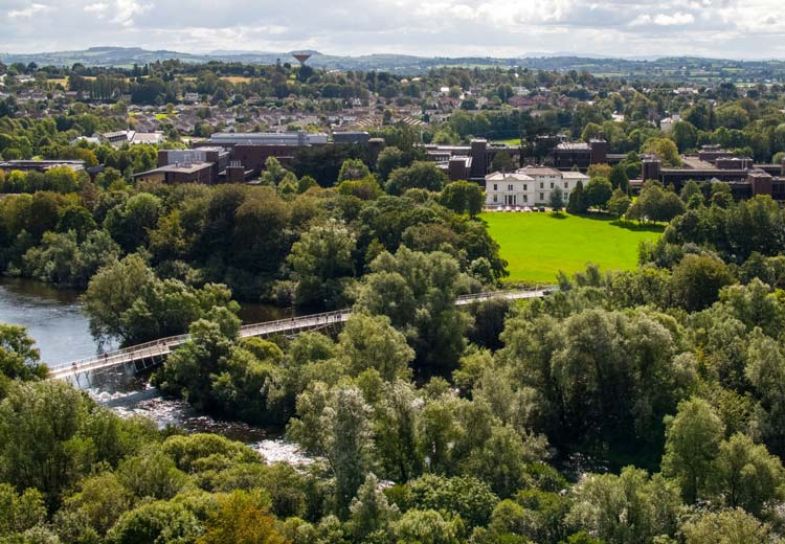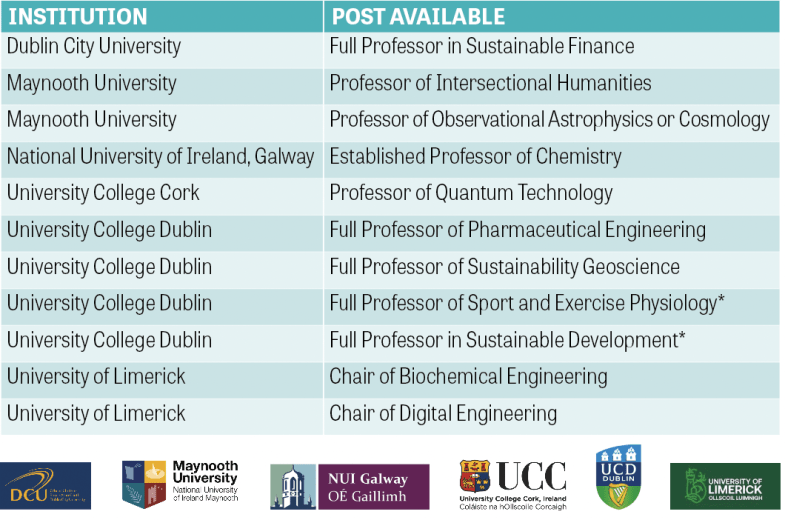
A host of Irish research-led universities are involved in the second round of a scheme to boost the number of women in senior positions in academia
A ground-breaking programme to accelerate gender balance at senior level in academia in Ireland is about to enter its second cycle. In November 2021, the Department for Further and Higher Education, Research, Innovation and Science announced that it was approving a further 10 posts at senior level as part of the Senior Academic Leadership Initiative (SALI).
SALI was launched in 2019 after analysis carried out by Ireland’s 2018 Gender Equality Taskforce revealed that 52 per cent of lecturers in higher education were female, but just 27 per cent of professors. One of its recommendations was the creation of new and gender-specific posts at appropriate levels and other positive actions that would create rapid and sustainable change. There is funding for 45 prestigious senior leadership posts over three years.
Although there have been women-only professorial recruitment schemes before, this is the only one to be backed by the Irish government across multiple sectors. The institutions involved are looking for female academics across a range of disciplines, including biochemical engineering, sustainable geoscience, intersectional humanities and pharmaceutical engineering. The posts were approved by an international panel of experts chaired by Chantal Davies, professor of law, equality and diversity at the University of Chester, and will be filled through a rigorous international recruitment process.
SALI is just one initiative within a broader programme across Irish higher education aimed at bringing about sustainable organisational change and improving gender equality. Creating a pipeline of senior women in academia is crucial, so targeted recruitment will be accompanied by measures that support women to achieve the top academic grade, creating visible role models for others at the beginning of their careers. The first cycle of SALI has already produced impressive results, with outstanding female academics being appointed across the Irish higher education system.
“The underrepresentation of women in our most senior academic positions is one of the most significant issues in higher education and is symbolic of the gender inequality that exists in our institutions,” said Tony McMahon, associate director of human resources and equality, diversity and inclusion at the Irish Universities Association. “The rollout of this second cycle of the SALI scheme represents a unique and major commitment on the part of all stakeholders to accelerate the pace with which we address this issue.”

*Additional posts self-funded by University College Dublin to match their SALI allocation from the Higher Education Authority
• While this initiative gives priority to highly qualified female candidates in order to address their under-representation, preferential consideration of female candidates is excluded if other reasons worthy of legal protection prevail. While it is envisaged that candidates for the new posts now on offer will have their applications submitted by 13th May 2022, it remains open to each HEI to manage the closing date for applications.
• In exceptional circumstances, candidates who are in a minority or are protected under Irish social legislation, or who also belong to an under-represented minority in academic posts, may be considered if the institution can clearly articulate its reasons.
Find out more about SALI.
Find out more about living and working in Ireland.
